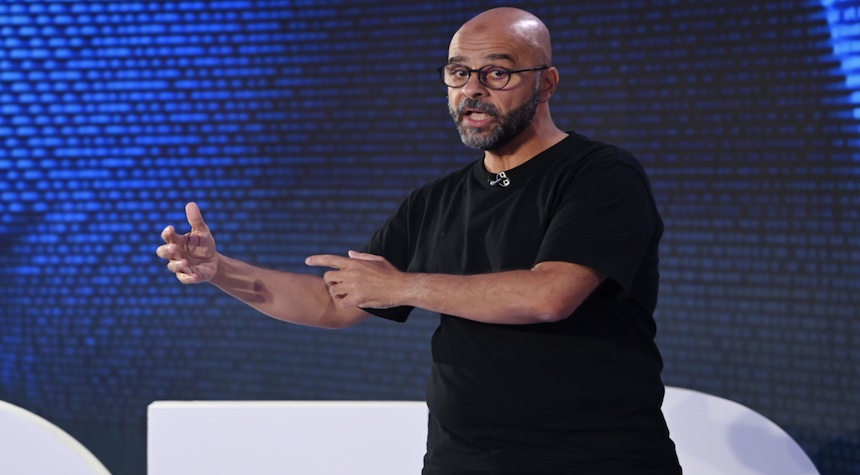Former Google executive Mo Gawdat has warned that artificial intelligence could lead to “a very significant redesign of love, relationships, and romance.”
In a recent episode of “Impact Theory With Tom Bilyeu”, the former Google X chief executive officer appeared. The two discussed the future implications of AI simulation of sex and relationship.
“Just consider all the illusions we are now unable to decipher from reality.” “The physical aspect of sex is easy to simulate.” Gawdat added that “if we can convince people that this sex-robot is alive, or that the sex experience they have in a virtual or augmented reality headset really is real then that’s what you get.”
He suggested that in the future “Think of Neuralink, or other ways to connect directly to your nervous system and why would you even need another being?”
Gawdat argued then that whether or not an AI can simulate sentience is irrelevant, as long as they are able to convince consumers that it’s a real experience. “There’s that huge debate about ‘are they self-aware?’ Does it matter if they do it so well?” Is it important if Morgan Freeman is talking to you in the video, or if it’s an AI-generated avatar?
He also argued that philosophical discussions about AI being aware of themselves are irrelevant: “If I believe they are, then they are. And we’re so close.”

Gawdat noted that children are early adopters and can talk to AI programs like they were a friend on Snapchat. He suggested that the development of artificial intelligence could lead to an irreversible change in society.
“Let’s say that this is a significant redesigning of society.” “It’s also a significant redesigning of love and relationships.” “And because money is involved, what’s to stop the next dating app from giving you avatars as dates?” He said that millions of people use Replika, an AI friend program.
Gawdat was skeptical when asked about “deaths from despair” and whether AI companionship will ultimately be good for humanity.
He replied, “It is just eerie. I don’t even know if the situation was worse or better.”

Gawdat said that in the short term, AI “has not been good for humanity. If you extrapolate this chart, it will be worse for mankind. Long term? I don’t think so. Maybe those robots are better than a girlfriend. “I don’t know.”
Gawdat wrote “Scary Smart”: The Future of Artificial Intelligence, and How You Can Help Save Our World. On his website, he noted that he was recognized for “early whistleblowing about AI’s unregulated developments and has become one of most globally consulted experts on the subject.”


